Strep Throat Vs. Sore Throat: Differences, Causes & Treatment
Self-diagnosing may be tricky as the differences are not readily apparent.

Image: Shutterstock
With an aching throat, you may wonder if you have strep throat or sore throat. To treat it effectively, you will have to know for sure. Strep throat vs. sore throat— what is the difference? That is what we aim to find out in this article, with regards to the symptoms, causes, diagnosis, and treatment methods. You can also find some helpful remedies to soothe an irritated and inflamed throat; a symptom both of these conditions have in common.
In This Article
What Is A Sore Throat?

Sore throat is a dry, painful, and itchy sensation caused by inflammation at the back of your throat. It is one of the most common reasons for people to visit a doctor’s office every year. This painful feeling may often worsen when you try to swallow. Although annoying and uncomfortable, most of the time a sore throat goes away on its own, depending on the cause.
Key Takeaways
- Unlike sore throat, strep throat is infectious and can be transmitted through air droplets.
- While cough is a symptom of sore throat, strep throat doesn’t have this symptom.
- A sore throat can be one of the symptoms of strep throat, but it can also occur due to other reasons.
- Doctors usually prescribe antibiotics for strep throat and corticosteroids for sore throat.
What Is Strep Throat?

Also known as Streptococcal pharyngitis or streptococcal sore throat, it is the inflammation of the throat caused by a bacterial infection. While strep throat affects people of all ages, it is commonly seen in children between the ages of 5 and15 years. Highly infectious, strep throat can be spread through air droplets when a person sneezes or coughs. It can also spread through contact with infected surfaces such as doorknobs, utensils, etc.
According to a 2022 CDC report, it was estimated that 14,000 to 25,000 cases of invasive A strep (severe infection due to bacteria found in blood, tissue, etc.) occur each year in the US. In the last five years, between 1,500 and 2,300 people died annually due to invasive group A strep disease. Strep throat also causes an estimated 5.2 million outpatient visits, and 2.8 million antibiotic prescriptions annually among US persons aged between 0 and 64 years.
Not sure whether you have a simple sore throat or strep throat? Let’s check out the difference between the two in the next section.
Sore Throat Vs. Strep Throat – Key Comparisons
Before we delve into the comparison of both these conditions, there is one key difference you must keep in mind. A strep throat may present sore throat as one of its symptoms, but a sore throat may also be caused due to a variety of factors.
- Symptoms & Signs
The table below gives you a clear idea of the symptoms of both sore throat and strep throat (1), (2).
| Sore Throat | Strep Throat |
|---|---|
| Hoarse, dry, and itchy throat | Sore throat |
| Absence of fever | High fever |
| Presence of coughing | Absence of coughing |
| Stomatitis – Inflammation and ulceration of the gum and mouth | Pharyngeal Inflammation – Inflammation of the pharynx |
| Headache and diarrhea | Cervical lymphadenopathy – Swollen lymph nodes |
| Conjunctivitis – Inflammation of the conjunctiva, leading to red and itchy eyes | Tonsillar exudate – White or yellow spots on the tonsils |
In the next season of this article, we closely examine the causes behind the two conditions.
- Causes
Strep throat is caused by a specific strain of bacteria called Streptococcus pyogenes or group A. Streptococcus (GAS).
On the contrary, sore throat can be caused by any of the following factors:
- Viral Infections – Research suggests that most upper respiratory tract infections result in sore throat and the common cold ( 3). Rhinovirus, adenovirus, and influenza are some of the common viruses that cause infections and are commonly transmitted during winters (1).
- Allergies – When a person comes in contact with common allergens such as pollen, food, or pet dander, it results in a wide variety of symptoms such as sore throat, nasal congestion, hives, trouble breathing, and sore throat (4).
- Dry and Cold Air– Exposure to cold and dry air leads to moisture being sucked out of the mouth and throat. This leaves a person’s throat feeling dry and sore (5).
- Environmental Irritants – Pollution, chemical irritants, and tobacco smoke may make your throat feel dry and sore (6).
- Injury – Sustaining any injury or trauma to your throat may result in your throat feeling irritated. Getting food stuck in your throat or yelling repeatedly may also overstrain the vocal cords, leading to soreness in your throat.
 Trivia
TriviaTo alleviate discomfort from some of the symptoms of sore or strep throat, jump over to the next section and find a few different home remedies you can try.
Home Remedies For Strep Throat And Sore Throat

If you are looking for home remedies for strep throat and sore throat, several natural options can help alleviate symptoms, although medical treatment is often necessary for a full recovery. You can try any of the following remedies to help reduce the discomfort in your throat:
- Get as much rest as possible.
- Drink lots of water to reduce the dryness and dehydration in your throat.
- Drink warm liquids such as lemon or ginger tea.
- Gargle with lukewarm salt water to help reduce the soreness (7).
- Suck on throat lozenges and candies to avoid dehydration.
- Take over-the-counter pain medications such as Ibuprofen or Advil.
Additionally, you can also consume spicy, clear soups and broths. L, a blogger, shares her experience dealing with strep throat and mono, offering guidance and remedies for symptoms such as throat discomfort, fever, and sleep disturbances. Apart from drinking water, juice and kale smoothies, and honey tea and chewing on small pieces of ice, she also drank a spicy soup that cleared her throat. She writes, “The spiciness level of the broth was just right. It helped to clear my nasal passages. The noodles were nice because they gave my stomach something else to digest for once. This broth got me through my mono (i).” If home remedies don’t work for you, then consulting a healthcare professional is the next step.
When To See A Doctor
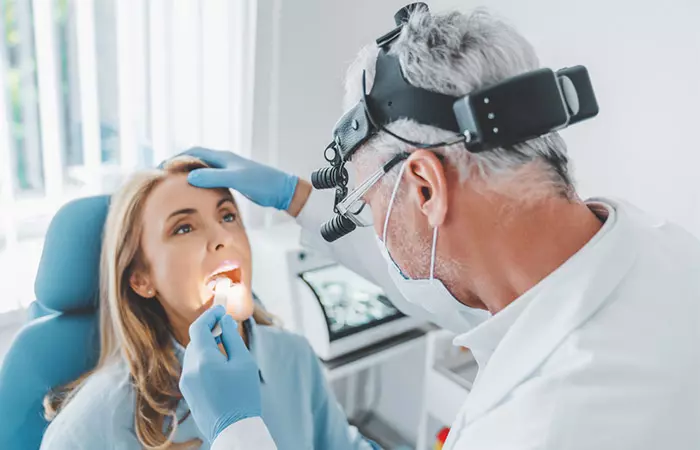
Consult your doctor if you experience any of the following symptoms with your sore throat:
- You have had a high fever for more than two days.
- Presence of white patches inside your throat.
- Extreme discomfort and soreness in your throat.
- A swollen throat that makes it difficult to swallow or breathe.
 Trivia
TriviaAlong with looking at the symptoms, your doctor may recommend some tests to confirm whether your sore throat is caused due to strep throat or some other infection. Let’s take a detailed look at what you may expect at the doctor’s office.
Diagnosis- Strep Throat Vs. Sore Throat
The first step of diagnosis for sore throat involves the doctor conducting a physical examination of your throat to check for swollen lymph nodes and inflammation. Your doctor may also ask for the history of symptoms to get a better idea. In order to find out more, your doctor may suggest any of the following tests for strep throat.
- Rapid Strep Test – Your doctor takes a swab sample from the back of your throat and examines it for the presence of A. Streptococcus. If the result is negative, your doctor will send the sample back for a culture test.
- Throat Culture Test – The swab sample taken from the rapid strep test is taken back to the laboratory to determine the exact cause of sore throat.
Once the source is determined, your doctor will prescribe the appropriate treatment for you.
Medical Treatment Options

In most cases, a sore throat or strep throat may resolve on its own within a week. But if it doesn’t, you can go to the doctor who can prescribe the following medications for relief.
- Antibiotics – Since strep throat is caused due to a bacterial infection, your doctor will prescribe an antibiotic to treat it. These medications inhibit and reduce the spread of the bacteria and its symptoms. Amoxicillin and penicillin are the most common antibiotics prescribed for strep throat. If you are allergic to both, then your doctor may prescribe azithromycin for the same. Strep infections clear within 3 to 5 days after beginning antibiotic treatment. It is vital that you complete the course of treatment to avoid relapse of the infection.
- Corticosteroids And NSAIDs – If your sore throat is due to a viral infection, your doctor may prescribe you these medications to reduce the fever and pain (8).
Even though these drugs work well, there are some negative effects you must know about. If antibiotics are not used as directed, for example, they may disturb the gut microbiota, resulting in digestive problems or increasing the risk of antibiotic resistance.
Besides being easily treatable, sore throat and strep throat are easily preventable conditions. Let’s check out the next section to see how you can avoid them.
How To Prevent Sore Throat And Strep Throat
You can lower the risk of developing strep throat and sore throat by following these simple tips.
- Regularly wash your hands to avoid infection.
- Avoid sharing food with someone who has strep throat.
- Wash your hands before eating your food.
- Do not share utensils and personal items with the infected individual.
- Cover your mouth when coughing or sneezing.
- Avoid contact with triggers or allergens.
- Cover your mouth and nose with a mask to avoid environmental pollutants.
- Drink warm water every day to keep your throat hydrated.
- Eat food that boosts your immune system to reduce the risk of developing an infection.
- Limit or avoid smoking to prevent a sore throat.
When recovering from a sore throat, it is important to prevent it from spreading to others. Read the next section to know how long you need to be cautious.
How Long Is A Sore Throat Contagious?
A sore throat may transfer from person to person as long as it’s caused by a viral or bacterial infection. It can remain contagious until you recover, which is typically around 10 days (12). A simple but effective way to ensure it does not spread is to frequently and thoroughly wash your hands and wear a mask.
It is also important to avoid certain foods to aid its recovery. Check them out in the next section.
Foods To Avoid With Sore Throat
When you have a sore throat, it is advisable to avoid foods that may cause acid reflux, which may lead to throat irritation (13). Some of them are as follows:
- Tomato sauces
- Fatty foods
- High-cholesterol foods
- Chocolate
- Caffeine
- Mint
- Carbonated drinks
- Citrus foods
To Sum It Up
Strep throat vs. sore throat is a common query as both conditions exhibit similar symptoms. However, a few key points make it easy to tell them apart. For instance, the presence of fever along with white spots in your throat are common symptoms of strep throat. While a sore throat is a symptom of strep throat, sore throat may also be due to a viral infection, allergies, or pollutants. Gargling with saltwater, sucking on lozenges, and drinking warm liquids are some of the best home remedies for relieving a sore throat. But if these tips fail to do so, medications prescribed by the doctor are the best way to treat your sore throat.
Frequently Asked Questions
What is worse, strep throat or sore throat?
Strep throat may cause more severe symptoms than a sore throat. It may also lead to complications such as kidney inflammation and rheumatic feveri An inflammatory disease that develops due to untreated scarlet fever or strep throat and causes fever and joint pain. if left untreated.
Can I have strep without a fever?
Yes. While fever is a common symptom of strep throat, you may not present with it. However, if you have strep throat, you are contagious even if you do not have a fever
Do you always have to have a sore throat with strep throat?
It’s crucial to keep in mind that not everyone exhibits all of the symptoms. In actuality, strep throat can occur without a sore throat. Cough, runny nose, and congestion are symptoms that typically rule out strep throat.
Is strep throat worse than a sore throat?
The following are the symptoms of strep throat, which are typically more severe than those of a sore throat: sudden throat pain, decrease in appetite, and pain during swallowing.
Learn how to tell the difference between strep throat and sore throat in this video! Also, get an overview of the symptoms, diagnosis, and treatment involved in the process by watching this video now!
Personal Experience: Source
StyleCraze's articles are interwoven with authentic personal narratives that provide depth and resonance to our content. Below are the sources of the personal accounts referenced in this article.
i. I Had Mono and Strep Throat. Here’s What Happened.https://kankakeeorparee.wordpress.com/2013/06/19/i-had-mono-and-strep-throat/
References
Articles on StyleCraze are backed by verified information from peer-reviewed and academic research papers, reputed organizations, research institutions, and medical associations to ensure accuracy and relevance. Read our editorial policy to learn more.
- Pharyngitis and sore throat: A review
https://www.researchgate.net/publication/286401306_Pharyngitis_and_sore_throat_A_review - Streptococcal Pharyngitis
https://www.ncbi.nlm.nih.gov/books/NBK525997/ - Acute Sore Throat
https://www.ncbi.nlm.nih.gov/labs/pmc/articles/PMC3135445/ - Allergic Reaction: Symptoms, Diagnosis, Treatment and Management
http://www.jsirjournal.com/Vol2Issue1013.pdf - Incidence, causes, severity and treatment of throat discomfort: A four-region online questionnaire survey
https://www.researchgate.net/publication/230652756_Incidence_causes_severity_and_treatment_of_throat_discomfort_A_four-region_online_questionnaire_survey - Environmental and non-infectious factors in the aetiology of pharyngitis (sore throat)
https://www.ncbi.nlm.nih.gov/labs/pmc/articles/PMC3439613/ - Randomised Controlled Trial of Salt Solution (Sodium Chloride) Mouthwash vs Thymol Glycerine, Usage in Sore Throat with Non Bacterial Pharyngitis
https://www.researchgate.net/publication/335681220_Randomised_Controlled_Trial_of_Salt_Solution_Sodium_Chloride_Mouth_Wash_vs_Thymol_Glycerine_Usage_in_Sore_Throat_with_Non_Bacterial_Pharyngitis - Pharyngitis
https://www.ncbi.nlm.nih.gov/labs/pmc/articles/PMC7145142/ - Vitamin D and Streptococci: The Interface of Nutrition, Host Immune Response and Antimicrobial Activity in Response to Infection
https://www.ncbi.nlm.nih.gov/labs/pmc/articles/PMC7852033/ - Streptococcal upper respiratory tract infections and psychosocial stress predict future tic and obsessive-compulsive symptom severity in children and adolescents with Tourette syndrome and obsessive-compulsive disorder
https://pubmed.ncbi.nlm.nih.gov/19833320/ - Incidence and clinical variables associated with streptococcal throat infections: a prospective diagnostic cohort study
https://www.ncbi.nlm.nih.gov/pmc/articles/PMC3481520/ - Streptococcal Pharyngitis
https://www.ncbi.nlm.nih.gov/books/NBK525997/ - The patient with sore throat
https://www.ncbi.nlm.nih.gov/pmc/articles/PMC7094485/
Read full bio of Dr. Saba
Read full bio of Sanchari Bhattacharya
Read full bio of Arshiya Syeda
Read full bio of Sindhu Koganti






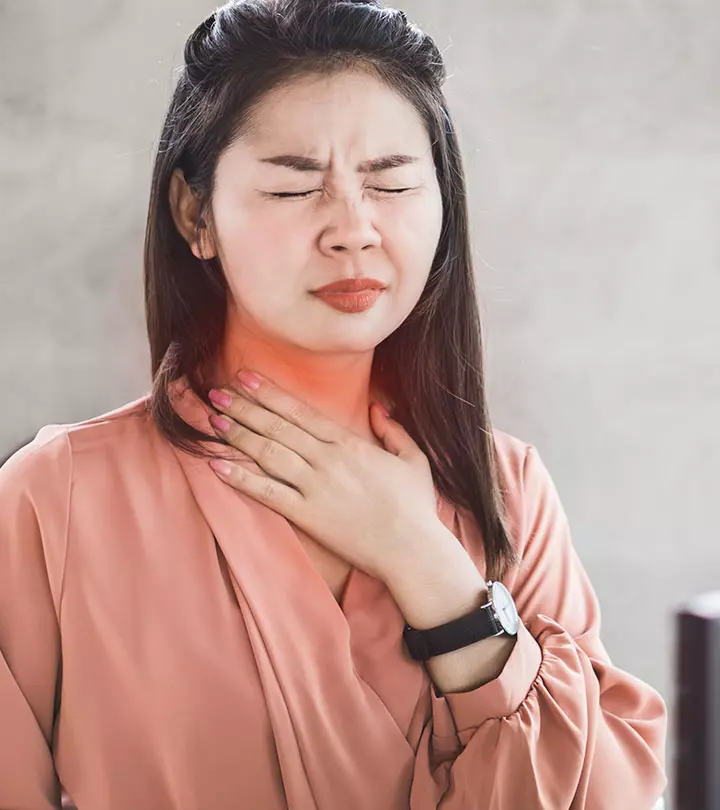

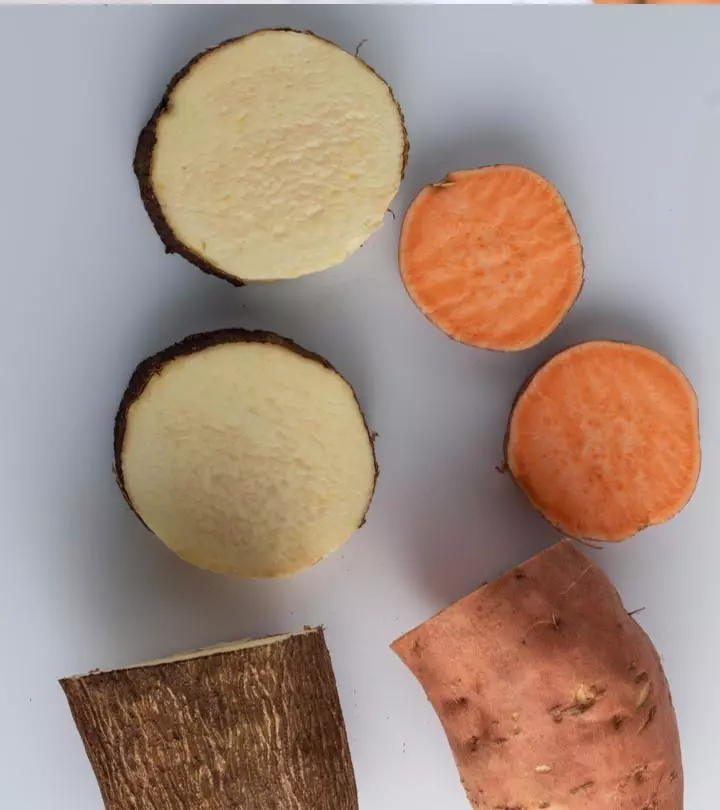

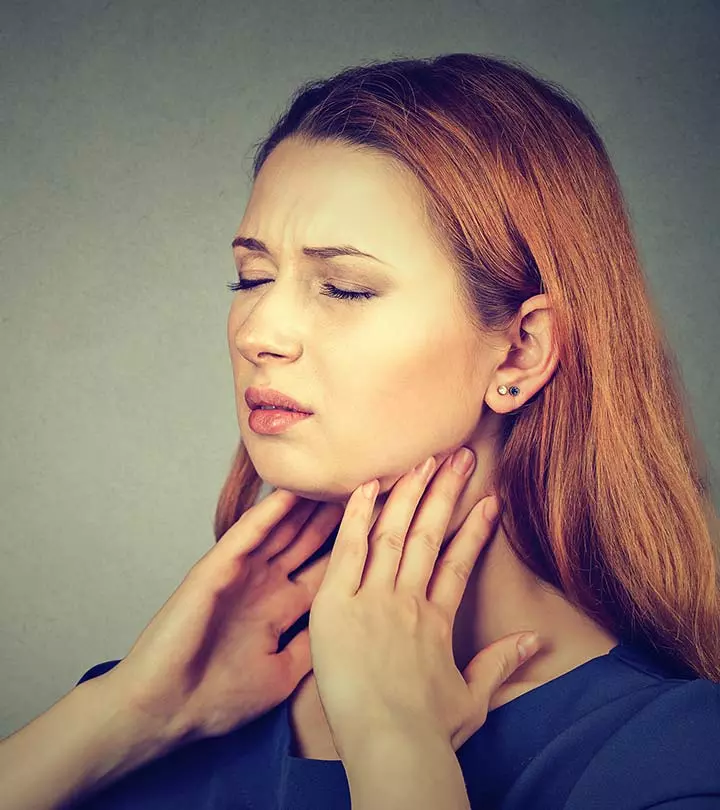

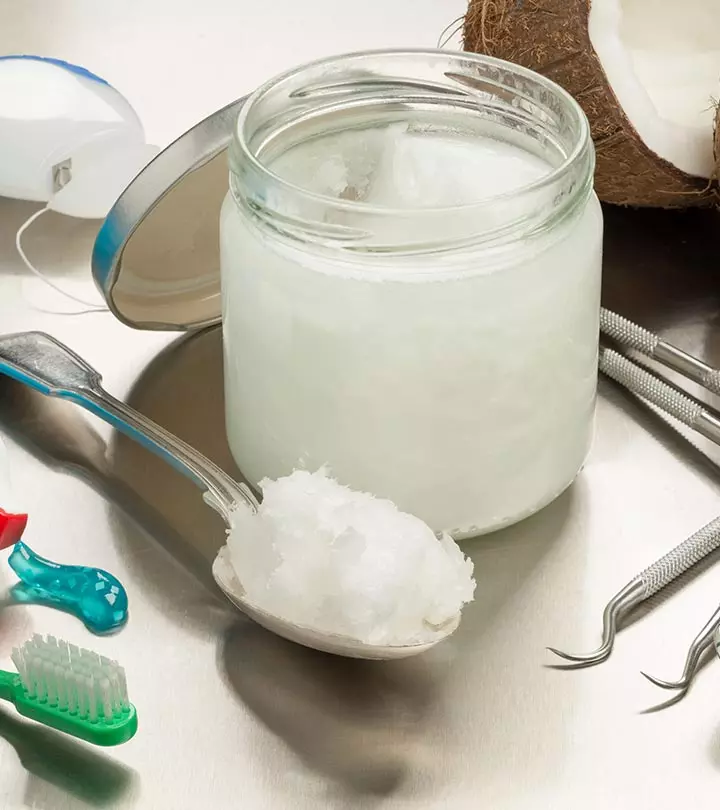








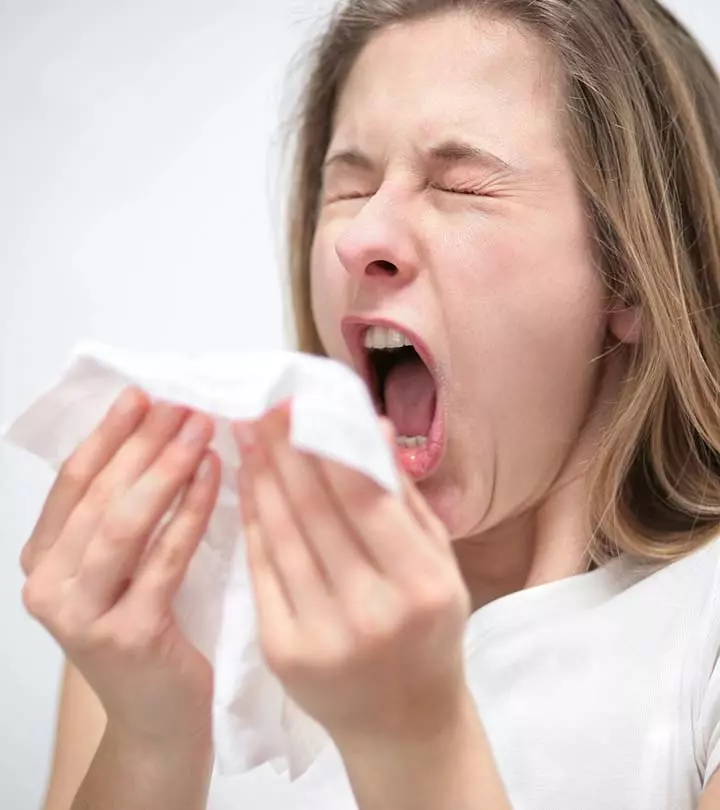


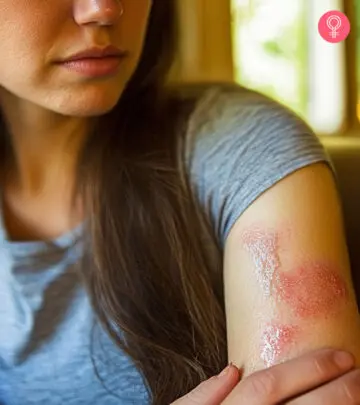

Community Experiences
Join the conversation and become a part of our empowering community! Share your stories, experiences, and insights to connect with other beauty, lifestyle, and health enthusiasts.